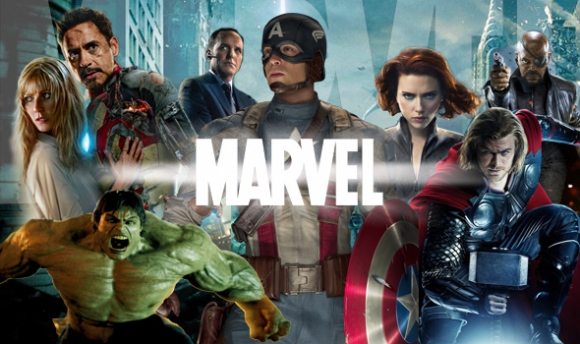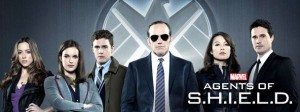The Expanding Marvel Television Universe
The Marvel Cinematic Universe is expanding to an unprecedented level. The franchise is impossible to miss, with new superhero blockbusters being released annually and routinely smashing box office records; the sixth instalment of the MCU, Marvel Avengers Assemble, is the third-highest grossing film of all time. Now, Marvel is expanding further, casting out its net from the big to the small screen.
Marvel’s first foray into television – discounting the multiple cartoon adaptations of various comic series – was with Agents of S.H.I.E.L.D., a 22-episode long series that first aired in September last year. The show picks up where Avengers left off, with Clark Gregg reprising his fan-favourite role of Phil Coulson, who was presumed dead at the end of the latter film. The series explores the mystery behind his resurrection, as well as introducing new storylines and characters.
Now, Marvel is expanding further, casting out its net from the big to the small screen.
Coulson is joined by his protégé Skye, scientists Fitz and Simmons, and field agents Ward and May, to create a ‘small, highly trained, team of Agents to tackle the cases that haven’t been classified yet, the new, the strange and the unknown’. While there were originally concerns raised by Marvel fans in the show’s early days regarding dull characterisation and a clunky plot, Agents of S.H.I.E.L.D. quickly came into its own, the pace escalating into a dramatic, genre-defying storyline, with the hallmarks of co-creator Joss Whedon’s memorable writing evident in the show’s unpredictable nature and witty dialogue.
Agents of S.H.I.E.L.D. has proved an excellent venture for Marvel. It has had to contend with the fact that it will simply never have the same viewing figures as its movie counterparts; a great deal of care was taken to ensure that nothing occurred in the TV series that would disrupt the film cannon, or make future Marvel movies incomprehensible.
But Agents of S.H.I.E.L.D. has manipulated this would-be handicap beautifully, incorporating movie tie-ins for both Thor: The Dark World and Captain America: The Winter Soldier, and simultaneously developing a series that works well as a standalone show but remains relevant to the main canonical movie universe. Certainly there are crucial plot points that will have to be confronted in future films, particularly in terms of the series finale and its relation to the events of the most recent Captain America film (though to say more would spoil a spectacular conclusion to the series).
Though the first season of Agents of S.H.I.E.L.D. is now finished, the Marvel Television Universe does not stop there. Not only has a second series been green-lighted by ABC, due to air in the coming Autumn, but a second show has also been commissioned: Agent Carter.
A series that works well as a standalone show but remains relevant to the main canonical movie universe.
This spin-off series will follow Agent Peggy Carter, originally from the Captain America films, in 1940s U.S., and her adventures running Shield with Howard Stark, battling bad guys and gender stereotypes all the while. As the Agents of S.H.I.E.L.D. hash tag observes #itsallconnected; the events of the present day Marvel Universe have transpired to be increasingly dependent upon Shield’s shady origins. Agent Carter is timed to debut January 2015, during the season 2 mid-season break of Agents of S.H.I.E.L.D.
As if all that wasn’t enough, Marvel and ABC studios have also entered a contract with Netflix to produce four new superhero series in the coming years, starting with Daredevil in 2015 and continuing with a three subsequent shows focusing on Jessica Jones, Iron Fist, and Luke Cage. How will these popular, if yet relatively unknown characters to the mainstream Marvel viewer, connect to the scheduled release of the Avengers sequel Age of Ultron? I, for one, am very excited to find out.


Comments